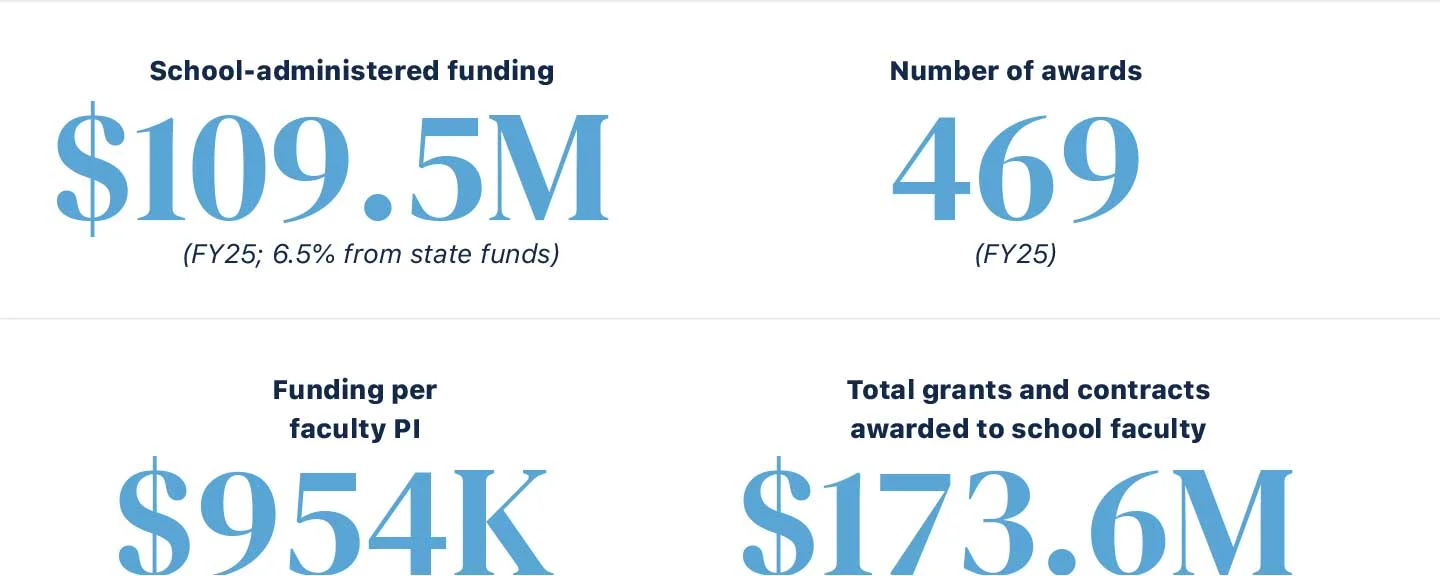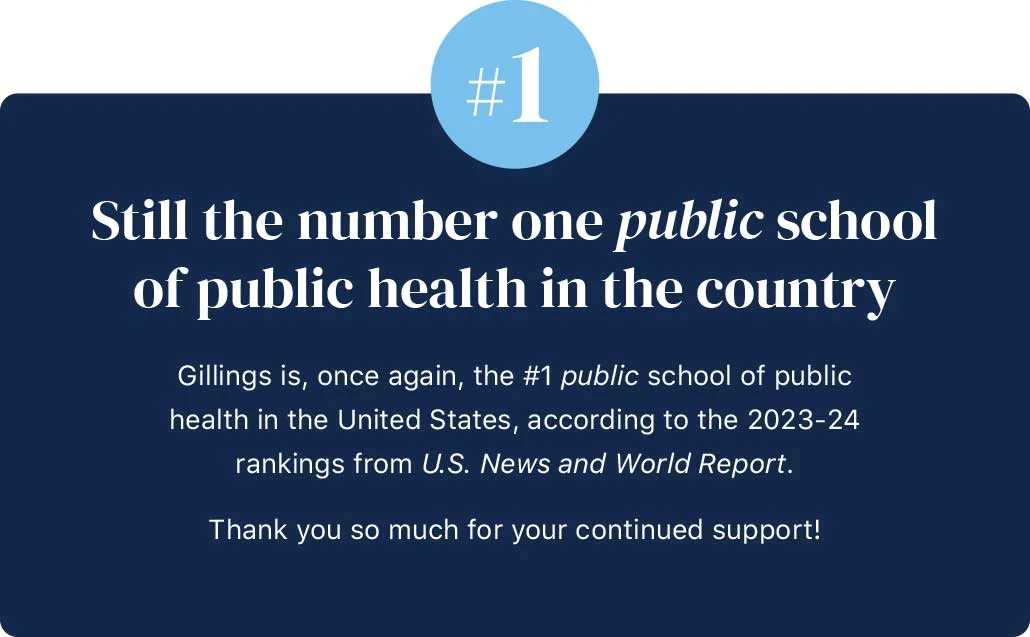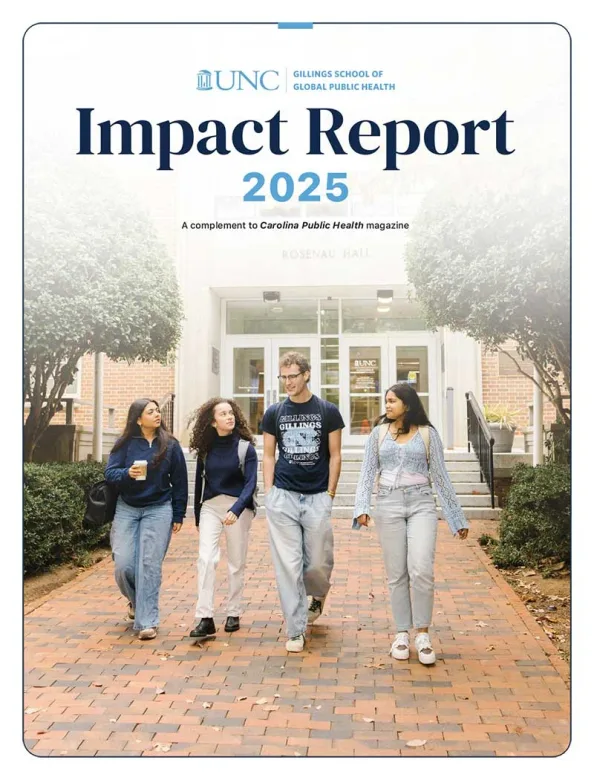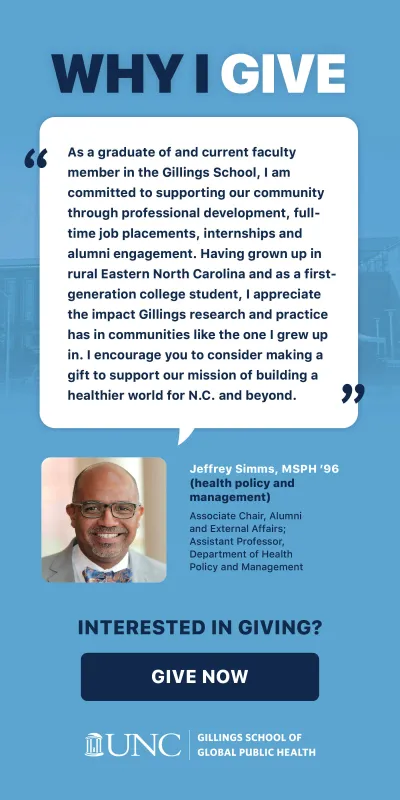Gillings researchers advance safer workplaces, maternal health, nutrition, cancer detection, global pregnancy care and more through high-impact studies.
Gillings researchers are deeply committed to advancing solutions to today’s most pressing public health challenges. From generating foundational insights to designing and implementing effective interventions, our multidisciplinary teams pursue collaborative, high-impact research that addresses real-world problems.
Alexia Kelley, PhD
Interim Associate Dean for Research
As we navigate the changing landscape of federal funding and policies, we are strategically developing a diverse research portfolio through innovative partnerships across academia, industry, government and community organizations. Looking ahead, we are focused on positioning ourselves at the forefront of public health research by leading with innovation and collaboration.
Check out some of the ways Gillings School researchers are addressing North Carolina’s health challenges while maintaining a strong global presence.

WIC as a maternal safety net
Maternal and child health researchers partner with USDA/WIC to implement evidence-based interventions that help staff and families recognize early warning signs of maternal morbidity. This approach can extend to health departments and Federally Qualified Health Centers, making it a scalable safety net for moms.
Researchers: Larelle Bookhart, PhD, Dorothy Cilenti, DrPH, Christine Tucker, PhD
Getting lead out, globally
Environmental sciences and engineering research on lead in drinking water drove World Health Organization guidance and a global pledge to eliminate lead pipes by 2040. Major implementers like World Vision and the World Bank have already shifted procurement, protecting millions of families from toxic exposure.
Researchers: Michael Fisher, PhD, The Water Institute
Drone-delivered defibrillators
Epidemiology research proved that autonomous drones can deliver AEDs to cardiac-arrest scenes, cutting critical minutes before emergency medical service arrives. This innovation could save countless lives by bringing lifesaving tech to neighborhoods fast.
Researcher: Wayne Rosamond, PhD
Safer jobs, healthier workers
Total Worker Health® research in health behavior improves safety and well-being for employees nationwide, influencing the National Institute for Occupational Safety and Health’s policy and training the next generation of workplace health leaders. These interventions reduce chronic disease risk and injuries where people spend most of their day — on the job.
Researcher: Laura Linnan, ScD
Diagnosing cancer sooner
Epidemiology and health policy and management researchers led the first U.S. study on emergency cancer diagnoses, revealing that up to 40% of cases start in the emergency room. Their work drives system changes to catch cancer earlier.
Researcher: Caroline Thompson, PhD
Food as health
Through a partnership with Equiti Foods, nutrition researchers help bring 1,200 healthy meals per week to Medicaid recipients in the N.C. Healthy Opportunities Pilots. The program also creates jobs and farm demand in rural communities, linking nutrition security with local economic growth.
Researchers: Alice Ammerman, DrPH, Lindsey Haynes-Maslow, PhD
AI for safer pregnancies worldwide
Biostatistics researchers codeveloped an AI tool for gestational age estimation using blind ultrasound sweeps, validated in underresourced settings across Africa and India. This innovation enables accurate pregnancy dating without expensive equipment or highly trained personnel. It is now being considered for global scaleup to improve maternal and newborn outcomes.
Researchers: Michael Kosorok, PhD, Jeff Stringer, MD
Healthy veteran communities across N.C.
Researchers in public health leadership and practice lead a $6.8M initiative to improve veteran health through community-based partnerships, resource mapping and best-practice toolkits. The project has engaged 30+ students and expanded to multiple N.C. counties, creating a replicable model for rural veteran well-being.
Researchers: Vaughn Upshaw, DrPH, EdD, Aimee McHale, JD




